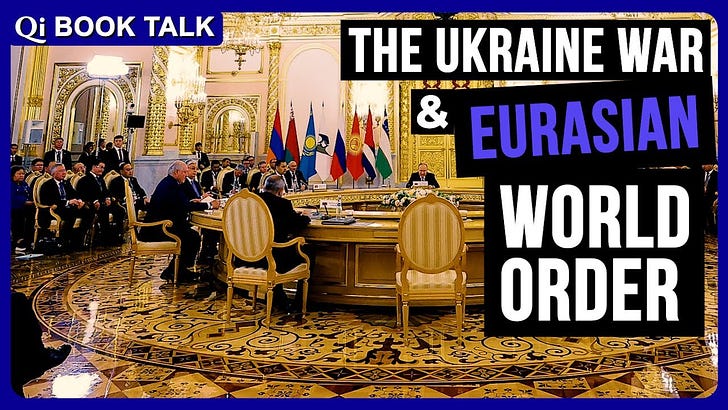The Ukraine War and the Eurasian World Order
Book talk: Professor Glenn Diesen & the Quincy Institute for Responsible Statecraft
I was interviewed by Anatol Lieven at the Quincy Institute for Responsible Statecraft about my book: “The Ukraine War and the Eurasian World Order.”
The post-Cold War world order of liberal hegemony aspired to overcome international anarchy and great power rivalry by asserting the dominance of one center of power and by elevating the role of liberal democratic values. However, liberal hegemony eventually ended as it relied on preventing the rise of rival centers of power, and empires predictably become incompatible with liberal democratic values as they rule over other peoples. The collective West has exhausted itself by transferring resources from the core to the periphery, while rising great powers are collectively balancing the collective West.
Centuries of Western hegemony have already come to an end, and the global majority aspires to develop a world order based on multipolarity and sovereign equality. Most large and medium-sized countries pursue a multivector foreign policy in which economic connectivity is diversified as a condition for a more autonomous foreign policy.
Unipolarity is over, but a multipolar Westphalian world order has not yet taken shape, leaving the world in a period of interregnum. A legal vacuum has emerged, in which the conflicting sides are competing to define the future order.
NATO expansionism was an important component of liberal hegemony as it was intended to cement the collective hegemony of the West as the foundation for a liberal democracy-imposed peace. Instead, it dismantled the pan-European security architecture and set Europe on the path to war without the possibility of a course correction. Ukraine, as a divided country in a divided Europe, has been a crucial pawn in the great power competition between NATO and Russia for the past three decades.
The war in Ukraine is a symptom of the collapsing world order. The war revealed the dysfunction of liberal hegemony in terms of both power and legitimacy, and it sparked a proxy war by the West against Russia instead of ensuring peace, the source of its legitimacy.
The proxy war, unprecedented sanctions, and efforts to isolate Russia in the wider world contributed to the demise of liberal hegemony. Much of the world responded to the war by intensifying their transition to a Eurasian world order that rejects hegemony and liberal universalism. The economic architecture is being reorganized as the world diversifies away from excessive reliance on Western technologies, industries, transportation corridors, banks, payment systems, insurance systems, and currencies. Universalism based on Western values is being replaced by civilizational distinctiveness; sovereign inequality is swapped with sovereign equality; imposition is replaced by negotiations; and the rules-based international order is discarded in favor of international law. A Westphalian world order is reasserting itself, although with Eurasian characteristics.
Much is at stake in the Ukraine War: the West’s defeat of Russia would restore the unipolar world order, while a Russian victory would cement a multipolar one. The international system is now at its most dangerous as the prospect for compromise is absent, meaning the winner will take all. Both NATO, under US direction, and Russia are therefore prepared to take great risks and escalate, making nuclear annihilation an increasingly likely prospect.
Follow Glenn Diesen on: https://x.com/Glenn_Diesen





Great Article!
We've shared the link on our report.
A Skeptic War Reports
https://askeptic.substack.com/
The illiberal world order and its chief advocates can't die soon enough.